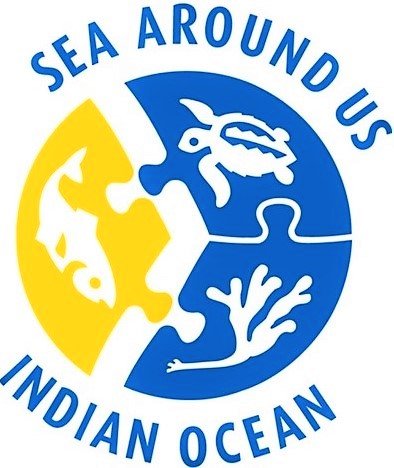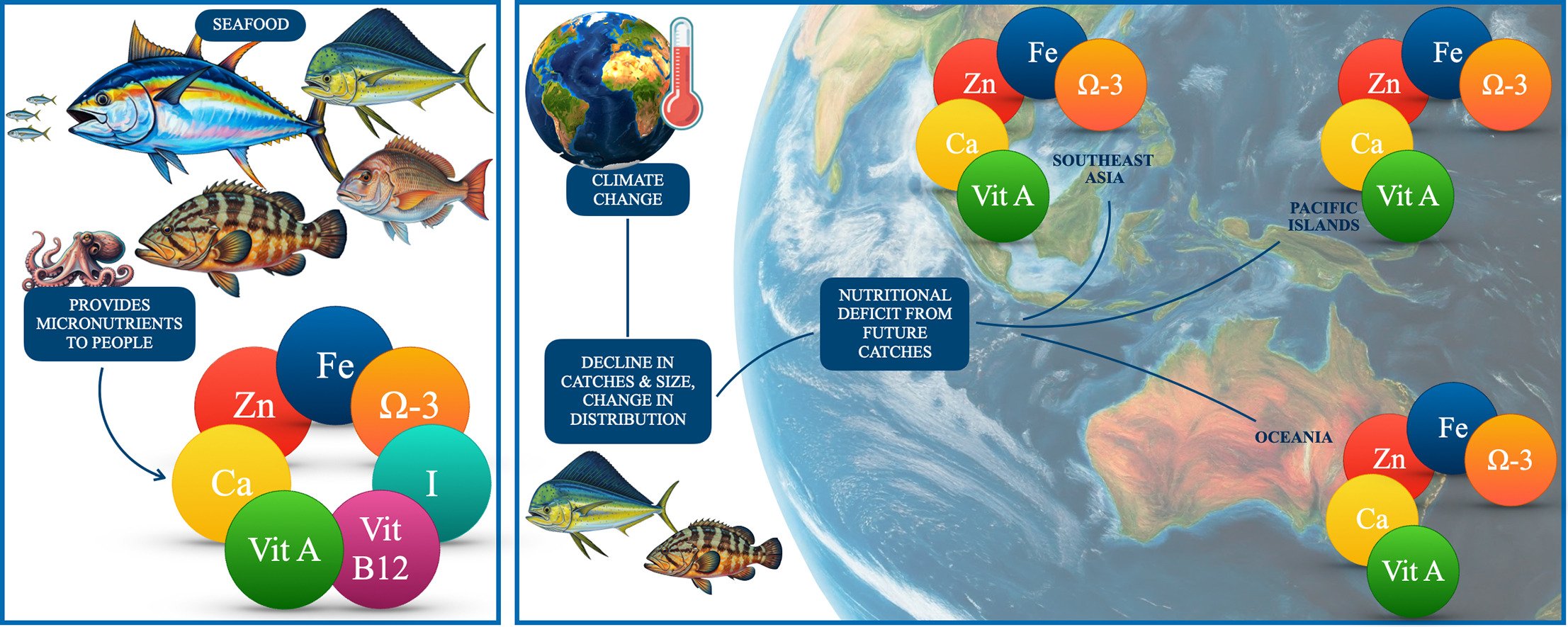The nutritional toll of climate change on communities in Southeast Asia and the Pacific
Climate change is impacting wild-capture fisheries that feed and employ millions of people in Southeast Asia and the Pacific Islands, threatening both their food security and their way of life. The future looks challenging, even in the best-case scenarios where strong climate action is taken.
The most recent study from the Sea Around Us – Indian Ocean, in collaboration with the Changing Ocean Research Unit at the University of British Columbia, and funded through a UWA Research Collaboration Award, examined the connection between projected climate change impacts on fish stocks and the fisheries derived micronutrient supply in Southeast Asia and the Pacific Islands. We examined seven micronutrients critical to human health - calcium, omega-3 fatty acids, iodine, iron, vitamin A, vitamin B12, and zinc. Our study predicts that the Pacific Islands and Southeast Asia will increasingly struggle to meet nutritional demands through fisheries alone.
The numbers are highly disconcerting. Even with strong climate mitigation efforts, maximum catch potential is expected to fall by 58–92% in the Pacific Islands and 65–86% in Southeast Asia by the mid to end of the 21st century. These losses will likely result in fisheries failing to meet the nutritional requirements for most of the modelled micronutrients. Urgent, adaptive fisheries management and nutrition-focused policies are needed to safeguard food security for these regions and reduce the risk of hunger and malnutrition for vulnerable coastal populations.
See: Cappa P, Andreoli V, La C, Palacios-Abrantes J, Reygondeau G, Cheung WWL and Zeller D (2024) Climate change undermines seafood micronutrient supply from wild-capture fisheries in Southeast Asia and Pacific Island countries. Science of the Total Environment 955: 177024. https://doi.org/10.1016/j.scitotenv.2024.177024

